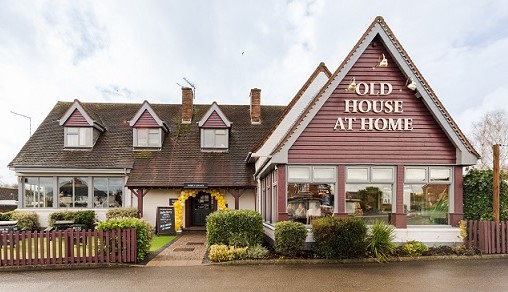Early October saw the first official ‘coming together’ of the new Birmingham Cultural Compact Board.
A cross-sector partnership designed to support the city’s cultural sector and enhance its contribution to development, it has a special emphasis on cross-sector engagement beyond the cultural sector itself. The Cultural Compacts model was born out of the UK Cultural Cities Investment Inquiry 2019 and their implementation in towns and cities across the country has been supported by Arts Council England and the Department for Digital, Culture, Media and Sport.
Chaired by Professor David Mba (Vice-Chancellor at Birmingham City University) with Councillor Saima Suleman (Cabinet Member for Digital, Culture, Heritage and Tourism at the city council) as Deputy Chair, the Birmingham Cultural Compact brings together stakeholders from the local authority, culture, business, education, healthcare and allied sectors with the aim to help culture thrive and grow in the city and, in turn, increase the city’s health, wellbeing, resilience, economic prosperity and environmental sustainability. Chair of the Birmingham Cultural Compact Professor David Mba said “It is an immense privilege to lead Birmingham’s Cultural Compact Board.
“We hope to offer the strategic vision for the future that represents the voices of all local communities. Birmingham has a unique and diverse culture that has global impact. We saw this through the Commonwealth Games in 2022 and, more recently, the city’s successful bid to host the Serendipity Arts Festival. Our work will put the preservation and celebration of culture at the forefront of regional decision making.”
Cllr. Suleman, Cabinet Member for Digital, Culture, Heritage and tourism and Deputy Chair of the Birmingham Cultural Compact, stated: "The establishment of the Birmingham Cultural Compact marks a pivotal moment for our city.
“By uniting diverse sectors—culture, business, education, and healthcare—we can cultivate a thriving cultural landscape that not only enriches lives but also drives economic growth and community wellbeing. Together, we will ensure that Birmingham's cultural sector flourishes for generations to come."
Erica Love, Chief Executive Office of Culture Central said: “We know the power Culture has on people and places and we believe in the power of working collectively.
“Culture Central are excited to be supporting Birmingham’s Cultural Compact and the collaborative approach to the Cultural strategy. It’s great to see the importance of Culture recognised and the vital role it plays in the city.
“We look forward to working with the Compact to advocate for, develop and celebrate the vibrant and varied cultural ecology of Birmingham.” One of the first actions for the Birmingham Cultural Compact is to lead and oversee development of Birmingham’s new Cultural Strategy 2025 – 2035.
Creative Concern, a creative and strategy agency that works on local and regional projects across the UK has been commissioned to deliver the new ten-year arts and culture strategy for Birmingham, supported by its partner consultancy Hatch. Their work will build on the previous extensive consultation that resulted in the city’s Cultural Statement of Intent but also build on the considerable cultural successes that Birmingham has demonstrated to date.
The outcome of the project will be an action-orientated framework strategy that supports culture and the arts across Birmingham for the next ten years. Founder and Director of Creative Concern, Steve Connor, said: “Culture is the lifeblood of any city and never was that more the case than for Birmingham.
“We’re delighted to be working collaboratively with a range of partners from across the city to develop this new strategy, which will re-affirm the importance of culture and the transformative role it can play in delivering civic pride, greater prosperity, wellbeing and of course, joy, happiness and entertainment.” Tim Fanning, Director at Hatch, said: “Culture makes life worthwhile, and we at Hatch spend a lot of time helping institutions and places make the case for it.
“We are very happy to be supporting partners in Birmingham to ensure that its cultural strategy is built on firm socio-economic evidence.”











